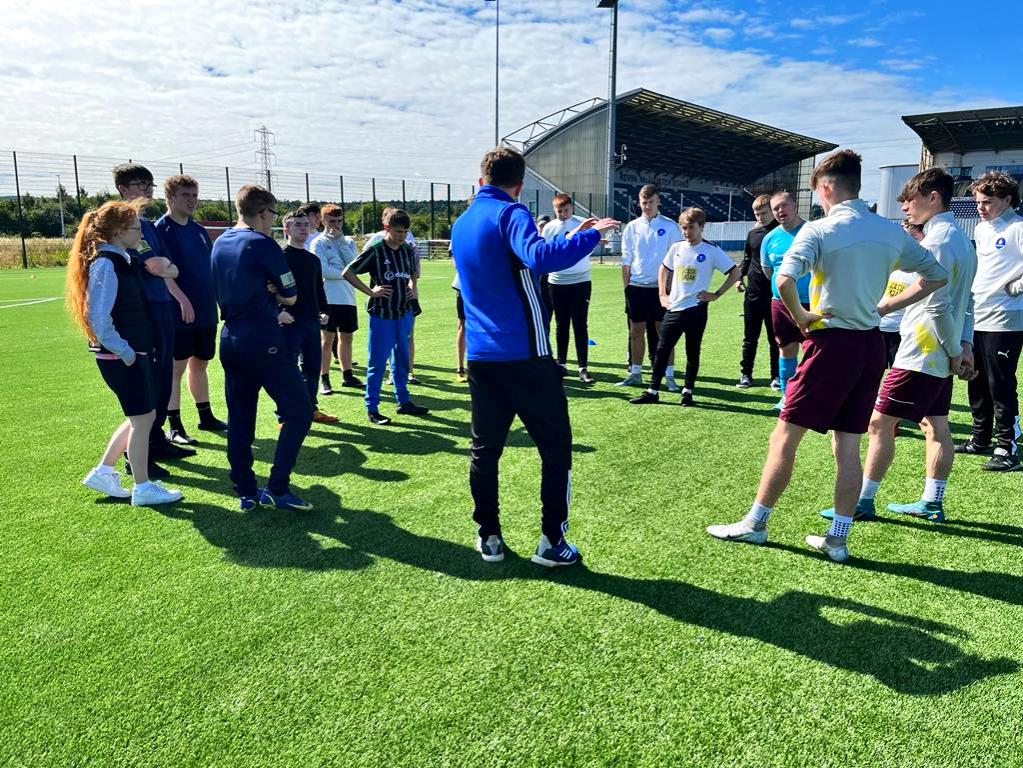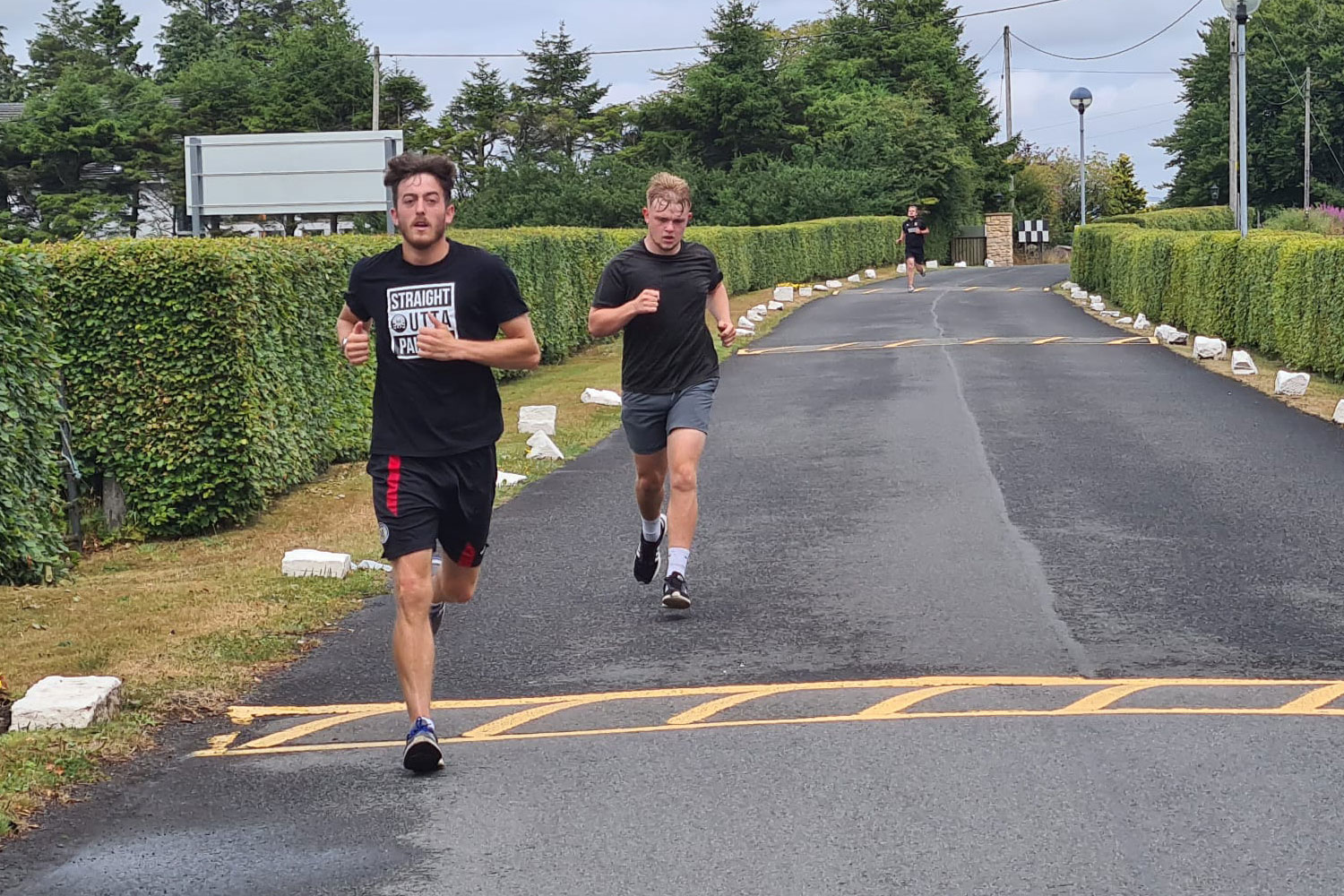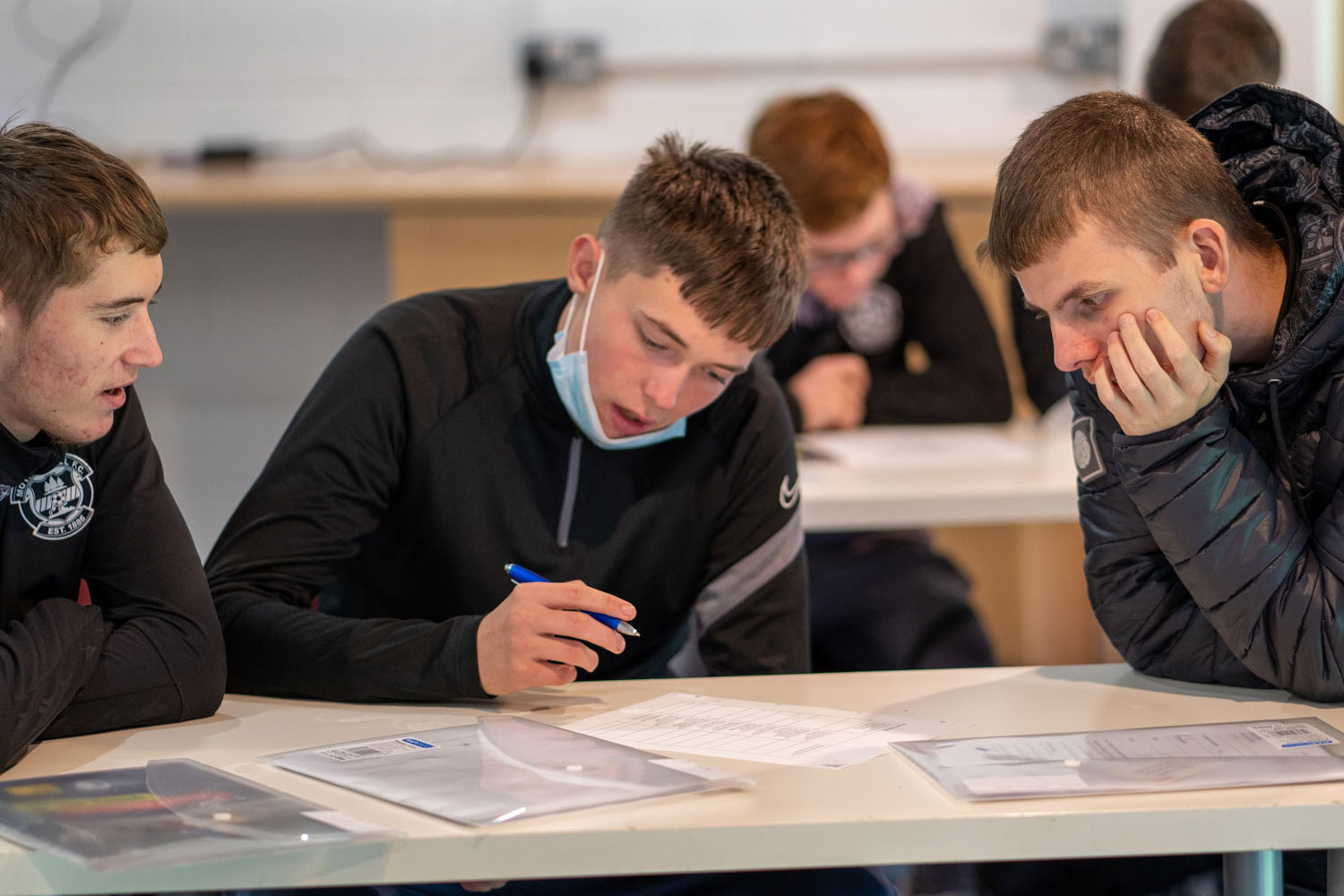By Gemma Fraser
Head of content
It is widely considered a universal language which breaks down cultural and socioeconomic barriers.
And a football programme is doing just that for young people in Scotland – while also giving them the opportunity to gain qualifications and, crucially, steer them away from criminal activities.
Off the Bench is designed for 16 to 25-year-olds who are at risk of being involved in antisocial behaviour, offending, or reoffending.
Young people can be referred to the programme, where a dedicated team help to prepare them for the world of work or further education, while also improving their health, mental health and wellbeing.
Run by the SPFL Trust, Off the Bench is funded by the Scottish Government’s CashBack for Communities scheme, using money from proceeds of crime.
“We know that football can reach people that others can’t, and in doing so break down barriers,” said Nicky Reid, chief executive of the SPFL Trust.
“Off the Bench works to provide our young people with an opportunity to access education, physical and mental health support to build better futures.
“Some move to secure employment, while others are pursuing further education, volunteering, and training opportunities. A number are even beginning their careers in football coaching.”

Research indicates that people living within 10 miles of an SPFL football club are three times more likely to experience poverty, which is where the club’s community trusts come in.
Five football trusts – Spartans Community Trust, Morton in the Community, Falkirk Foundation, The Killie Community and St Mirren FC Charitable Foundation – are now involved, with a new intake starting in September.
In 2024/25, 44 per cent of participants said taking part in the course had reduced their participation in antisocial or criminal behaviour, while 80 per cent said they gained accreditation for a new skill.
The young people have also said that taking part in the programme has increased their confidence, given them a more positive outlook on life, and made them less inclined to drink alcohol or take drugs.
Fiona McAlister, SPFL Trust programme lead, told 1919: “I would say the biggest change in the young people who do the course is the change in confidence and self-esteem that’s apparent across every course I’ve ever seen.
“The young person comes out the other side and they’ve got someone who believes in them, someone who trusts them and boosts their confidence to make them believe they can do something with their future.
“Quite often we see young people coming in with complex issues across multiple fields. Having that commonality of having someone there that they can speak to about anything and who will push them to realise what they are able to do is huge for them.
“It means at the end they do come away with qualifications or hopefully a job, or an interview, or the prep work to get them into employment or education. Ultimately it’s building confidence, self-esteem and resilience that get you that job.
“Some of the stories I hear are just heartbreaking of where they’ve come from and what they’ve had to overcome just to get out the door to the football club, so it’s lovely to see.”
As well as meeting the age criteria, the young people selected for the programme need to be out of education and not in employment, and they are referred by a professional who has worked with them elsewhere, for example in the care system.
Each eight-week programme runs three days a week, with participants getting access to services and support including mentoring, food, help with job applications and interviews, free use of electronic devices, and physical education provided by trained coaches.
McAlister added: “Football’s an attraction because everybody knows something about football and most people see it as a beacon of their community.
“It’s a familiar and trusted brand that hasn’t got negative connotations that other national organisations might have.”









